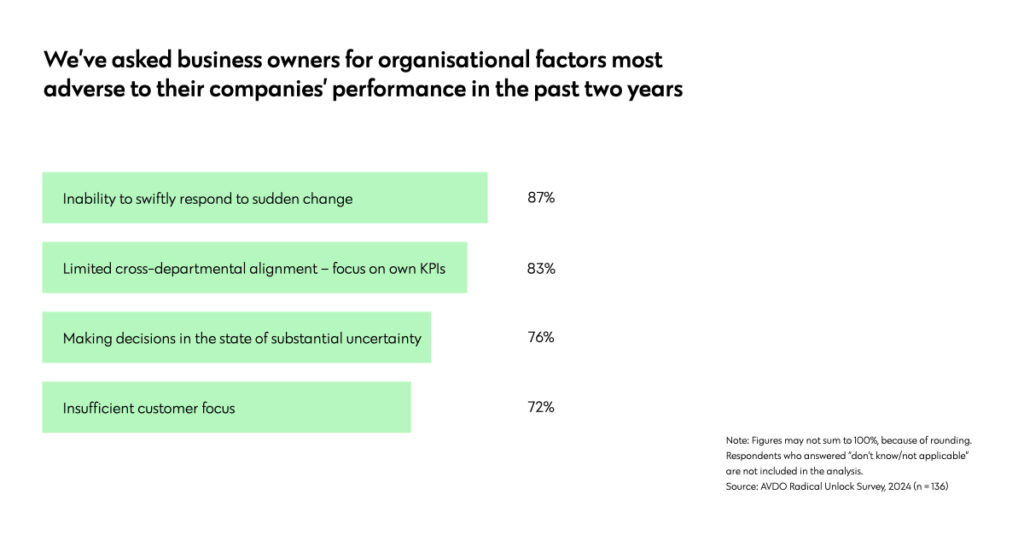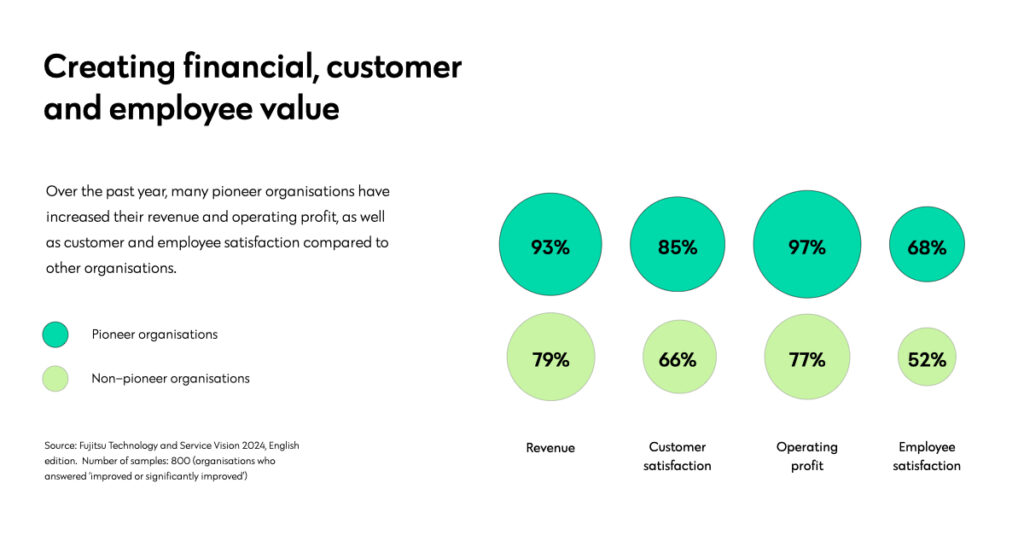AVDO’s Radical Unlock 2024 report highlights a number of organisational trends borne out of challenges shared by enterprise owners across 11 markets in Europe, Asia, Caucasus, the Middle East and North America.
1. The spreading state of perpetual uncertainty calls for new decision-making frameworks and a much more flexible approach to both strategic planning and organisational design.
2. The rapidly shifting markets force a higher level of team agility and speed.
3. Increased complexity of the consumer landscape (who buys what for what reason and how often) elevates front-line teams and pushes more decision–making from the top floors of HQs to the organisational edges.

Fujitsu’s regenerative enterprise
Fujitsu’s regenerative enterprise vision addresses some of these challenges by leveraging emerging technologies (AI, blockchain and quantum computing) to help companies not just find their footing and be financially successful, but offer a “net positive” contribution – drive a regenerative impact on the environment, the economy, individual employee well-being and society at large, bringing about a more prosperous future.
In that vision, AI is deeply integrated into strategic planning, day-to-day operations and decision-making, contributing to tasks where scale and speed of analysis are required, leaving more inquisitive, creative thinking to human operators.
Democratisation of decision-making
Using AI models to simulate a range of complex future scenarios – from resource allocation and manufacturing to the behaviour of consumers and competitive forces, would allow teams to assess the consequences of the choices available. This comprehensive foresight would, in turn, allow shifting some decision-making to the front lines – saving time, while cultivating a culture of empowerment and responsibility.
Teams would use their organisations’ digital twins to gain a deeper understanding of the changing environment in real time, while AI simulations would allow instantaneous operational adjustments, optimising for strategic priorities – growth, profits, sustainability, CO2 reductions, et cetera.
Early bird catches the worm
Fujitsu’s research suggests companies pioneering tech integration have clear and wide-ranging advantages.

To benefit from emerging technologies and become regenerative enterprises, companies need to adapt
Blockchain-based verification, quantum computing and AI-powered analysis and foresight are obviously powerful tools, but without appropriate integration they can also do damage, like a race car taken out on an unsuitable surface by an inexperienced driver. Organisations will need to consider a number of aspects, some – organisational, others – quite existential, concerning both structures and people.
Vision and strategy
Have always been important, but if the transformation allows an organisation to move twice as fast, moving in the wrong direction could create twice as much damage.
Skills
Securing the necessary skills will be the challenge for decades to come, so developing an attractive proposition and talent pipeline are paramount.
Culture
Powerful technologies will require a lot of teamwork with reduced oversight and increased individual responsibility – it can only work when people truly want to succeed; together.
Organisational design
A new approach to decision-making will require updates to the companies’ structure, processes, systems of permission, responsibility and rewards.
Executive management
The current decision-making class will make fewer decisions, but spend more time fostering an environment that allows good decisions to be made elsewhere, assisting and coaching teams to ask the right questions and working collaboratively at a much higher velocity.
Reference: Fujitsu Technology and Service Vision



